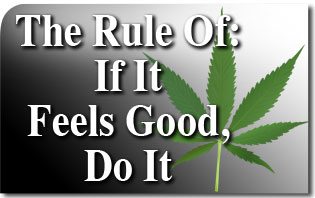 Almost everyone knows those who used marijuana at some point in their lives, and few claim that they have observed profound or lasting effects from the drug. So it cannot be that bad. After all, we live in a society that frowns upon cigarette smoking and has strict laws governing alcohol, so why not just legalize pot and allow a little fun?
Almost everyone knows those who used marijuana at some point in their lives, and few claim that they have observed profound or lasting effects from the drug. So it cannot be that bad. After all, we live in a society that frowns upon cigarette smoking and has strict laws governing alcohol, so why not just legalize pot and allow a little fun?
Unfortunately, there are many studies available that attempt to demonstrate that marijuana use is harmless. Some states have legalized marijuana based on such data. However, there is a growing body of real scientific and medical studies that say the contrary. These make it evident that marijuana is hardly harmless.
As with the passing of any law, a great deal of study and analysis should be done to ensure that what is being legalized is actually beneficial for the common good, while not allowing a minority to lobby for legislation for their personal gain at the expense of the common good.
One such harm to the common good would be the growing evidence of a significant and consistent relationship between marijuana use and the development of schizophrenia and related disorders. Schizophrenia is considered one of the most devastating mental illnesses, and those who suffer from it require frequent and protracted medical care in psychiatric wards. It frequently causes visual or auditory hallucinations, cognitive impairment and severe social withdrawal.
Marijuana is considered to be a hallucinogen and recent studies done in the U.S., Sweden, New Zealand and Holland that spanned as much as 15 years, demonstrate a strong correlation between marijuana use in youth and the development of schizophrenia later in life.1 An article in the British Journal of Psychiatry concluded that marijuana is a “causal component,” among others, in the development of schizophrenia and other psychotic disorders.
Facts derived from these studies demonstrate that marijuana use precipitates schizophrenia or related psychotic disorders in the brains of people who are inherently vulnerable to psychosis. So this begs the question as to why eighteen states plus the District of Columbia, (with six more states pending), legalized “medical” marijuana? Somehow medicine and law have become a matter of a public vote and not objective scientific data.
Recently, voters in Washington and Colorado chose to fully legalize marijuana, “medical” or otherwise. On the same day, voters in Arkansas overwhelmingly defeated a proposal to allow its use even for “medical” reasons. In the midst of it all, the use of marijuana remains illegal under federal law in violation of the federal Controlled Substances Act. However, the Obama administration has taken no position in face of state legalization of marijuana and has made it clear that federal law will not be enforced.
What can be said of the moral fiber of a country that has laws on the books that it refuses to enforce? Do our elected officials have the prerogative to choose which laws they enforce and which ones the do not? If they do, we are witnessing the end of the rule of law through moral relativism by the implementation of the rule of: “if it feels good, do it.”

